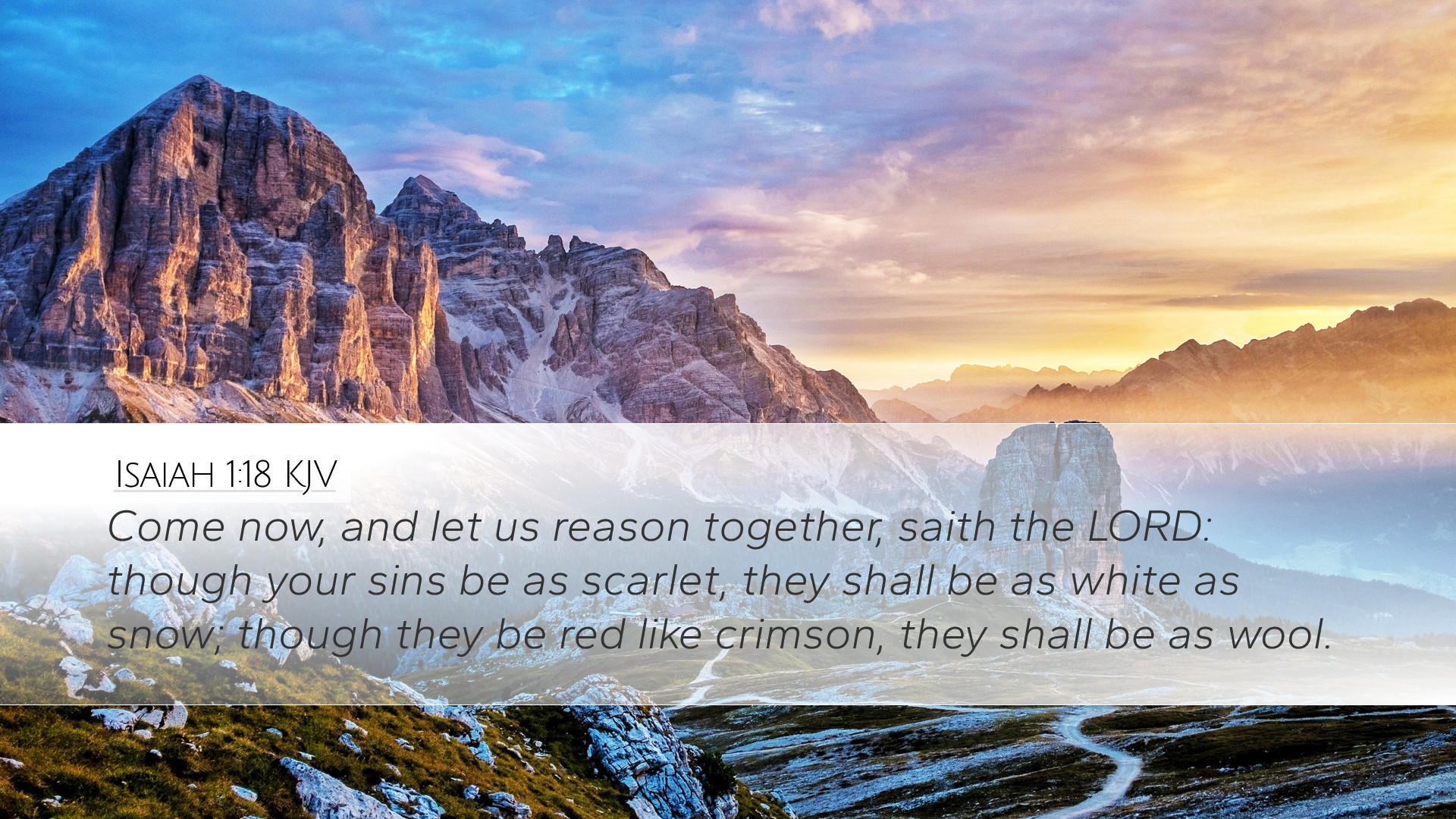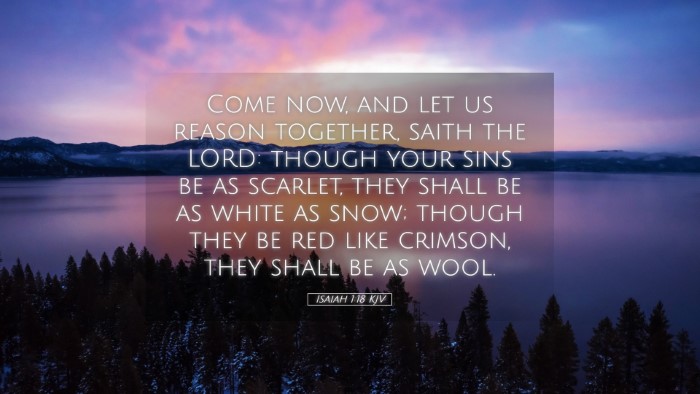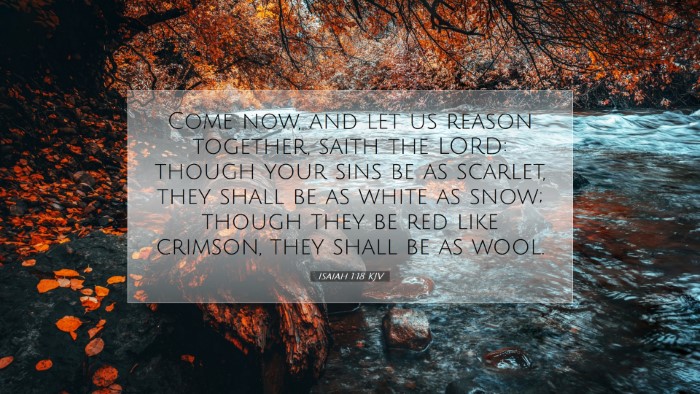Commentary on Isaiah 1:18
Isaiah 1:18 presents a profound invitation and a promise from God, encapsulating the themes of guilt, repentance, and redemption. The verse states:
"Come now, and let us reason together, saith the Lord: though your sins be as scarlet, they shall be as white as snow; though they be red like crimson, they shall be as wool."
Contextual Overview
This verse is set against the backdrop of Isaiah's prophetic ministry to the people of Judah. In the opening chapters, Isaiah condemns the rampant sin and moral decay in Judah while simultaneously calling the people to repentance. This chapter serves as a pivotal point for understanding the character of God as both just and merciful.
Insights from Public Domain Commentaries
Matthew Henry's Commentary
Invitation to Reason: Matthew Henry explains the divine invitation "Come now, and let us reason together," emphasizing the accessibility of God to His people. This phrase reflects God’s desire for dialogue, an acknowledgment of the importance of understanding one's condition before God.
The Nature of Sin: Henry elaborates on the metaphor of sin represented as "scarlet" and "red like crimson." These terms denotes the vividness and deep stain of sin, illustrating both the severity of the people's disobedience and the need for divine cleansing.
Promise of Cleansing: The promise that sins "shall be as white as snow" speaks to the transformative power of God’s grace. Henry concludes that despite the deep stains of sin, God's purification can bring a complete change, leading to wholeness and renewal.
Albert Barnes' Notes on the Bible
Call for Dialogue: Barnes emphasizes that the call to "reason together" signifies not merely a casual discussion but an earnest engagement with God. It highlights the compassionate nature of God, who invites sinners to consider their state and His grace.
Redemption through Repentance: According to Barnes, the terms "scarlet" and "crimson" convey the depth of sin while God's promise symbolizes hope. The transformation from crimson to wool illustrates that redemption is available to all, no matter the severity of their sins.
Covenant Relationship: Barnes further notes that this verse is foundational in understanding the covenant relationship between God and His people. The willingness to repent and the assurance of forgiveness is central to fulfilling the covenant obligations.
Adam Clarke's Commentary
God’s Empathy: Clarke interprets the phrase “Come now” as a gentle yet firm appeal from God. He underscores that God’s willingness to engage with humanity in reasoning reflects His empathetic nature.
Symbolism of Color: Clarke discusses the color symbolism used in this verse, noting that "scarlet" and "crimson" represent sin at its most egregious. The subsequent promise of becoming "white as snow" symbolizes absolute purity and forgiveness.
Human Responsibility: Clarke notes that the verse also implies human responsibility in the act of coming to God for reasoning. There is an expectation that the individual acknowledges their sins to receive the promised cleansing.
Theological Implications
This passage from Isaiah serves as a theological cornerstone concerning the nature of sin, the human condition, and God’s redemptive plan. It encapsulates the essence of the Gospel message that God longs for His creation to turn from their sinful ways and embrace His mercy. The stark contrast between the harshness of sin and the purity offered through God’s forgiveness highlights both the gravity of human transgression and the boundless grace of God.
Application for Pastors, Students, and Theologians
Understanding Isaiah 1:18 is crucial for pastoral ministry, biblical scholarship, and theological discourse. Its rich implications offer several applications:
- Evangelism: This verse is a powerful reminder of God's open invitation to sinners, making it a central text for sharing the Gospel.
- Pastoral Care: Pastors can draw on this verse to counsel those in despair over their sin, offering them hope rooted in God’s promise of forgiveness.
- Personal Reflection: Individuals studying Scripture are invited to examine their own hearts, recognizing their inclination to sin while also resting in the assurance of God’s cleansing power.
- Theological Discourse: Scholars can explore themes of justice and mercy, the nature of repentance, and the implications of God’s invitation to dialogue within the broader context of divine revelation.
Conclusion
Isaiah 1:18 stands as a testament to God’s unwavering desire to reconcile with humanity. This verse invites all to recognize their sinfulness while simultaneously offering relentless hope for redemption. Through careful reflection on this text, believers and scholars alike are encouraged to engage with God’s character and the profound implications of His grace.


